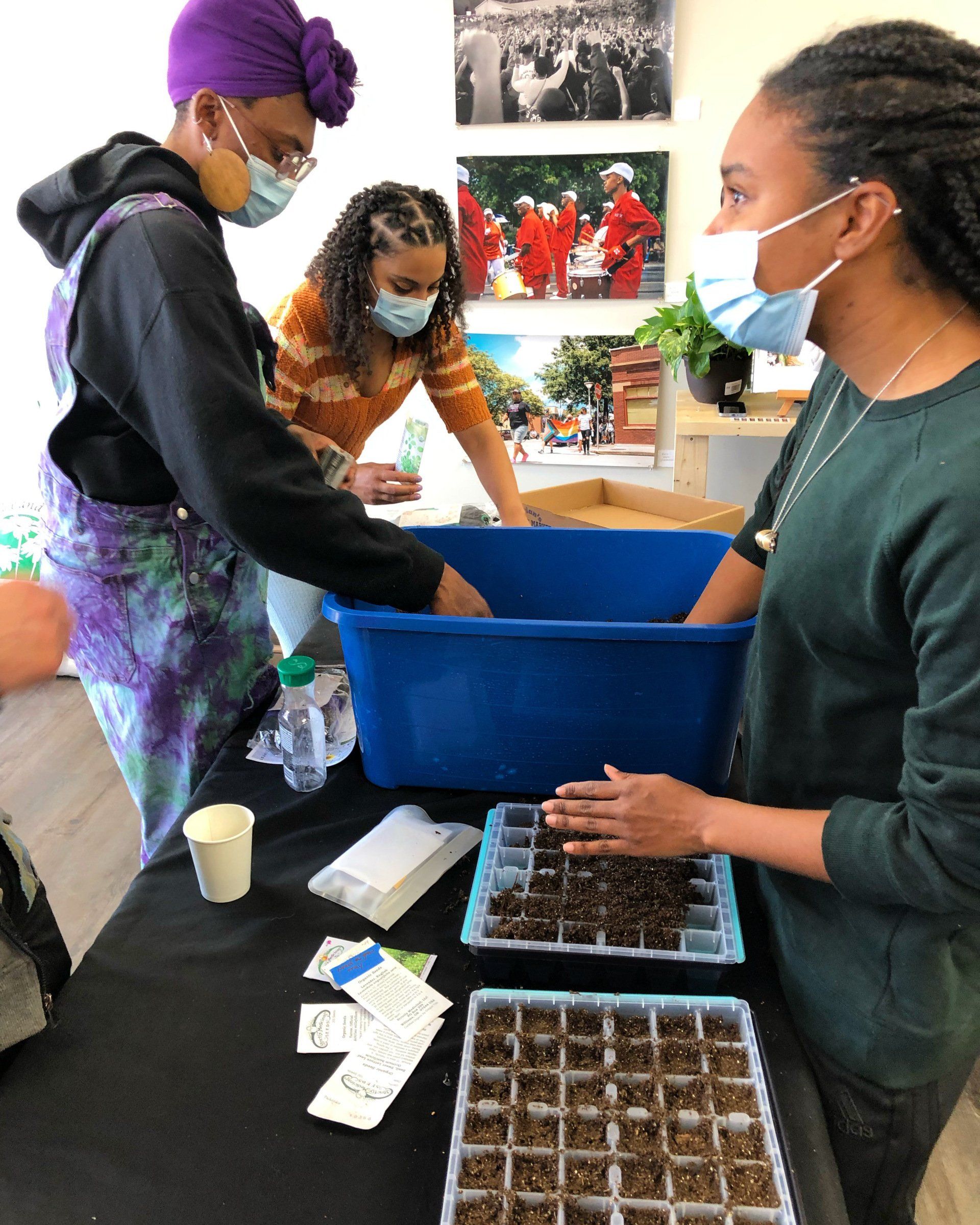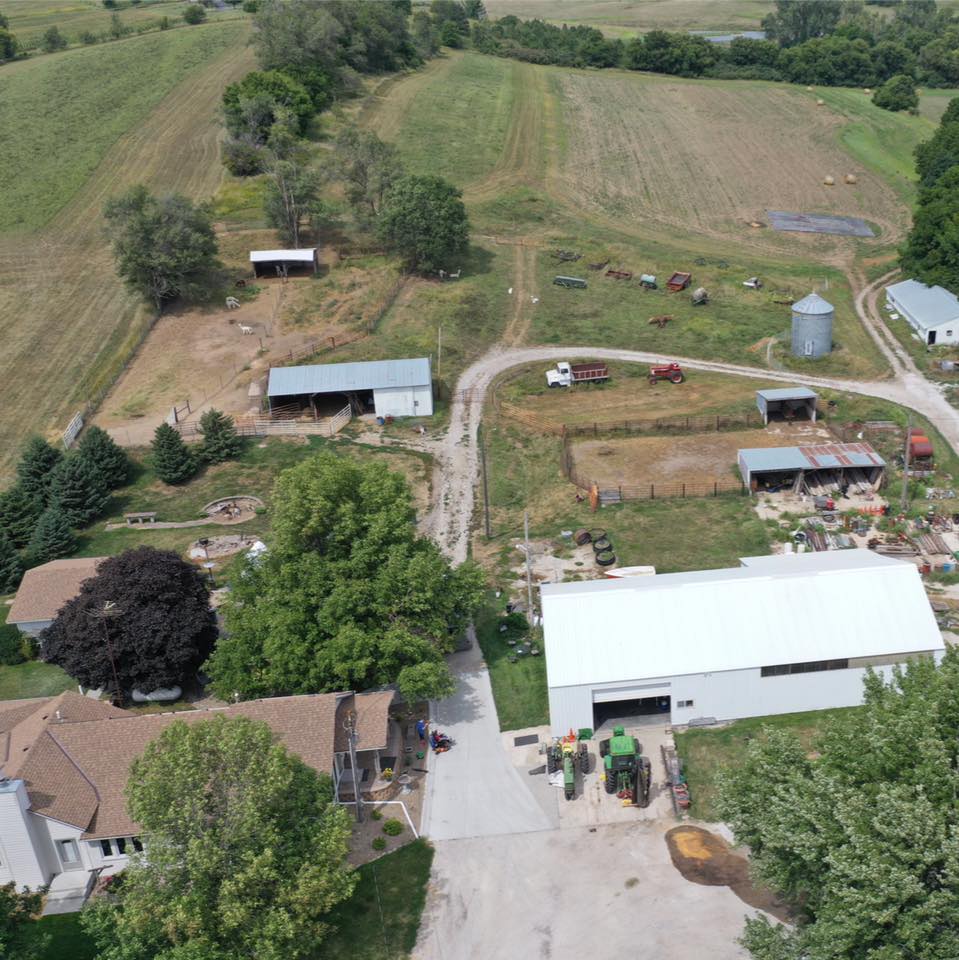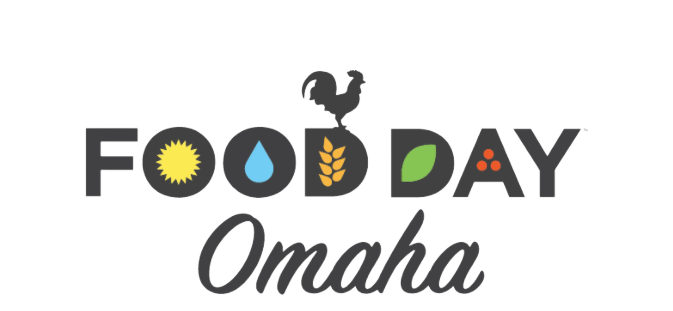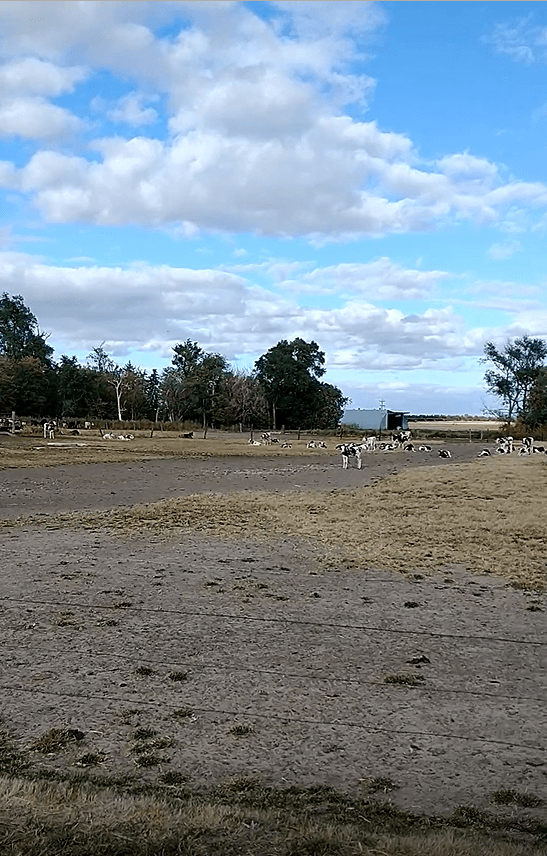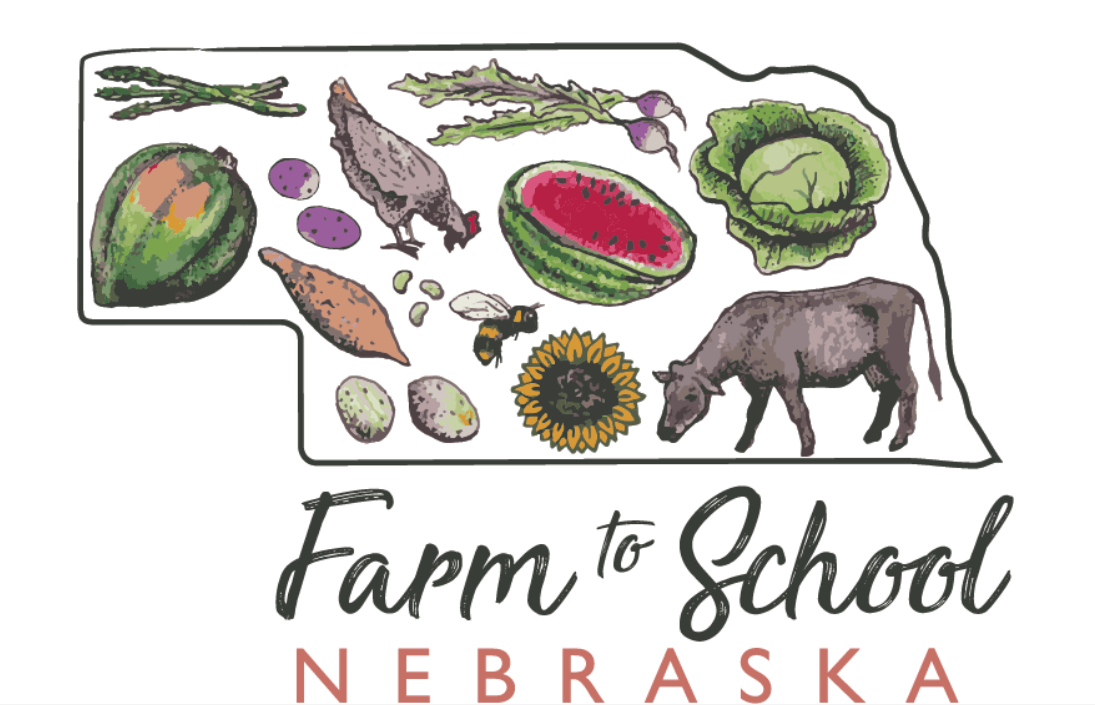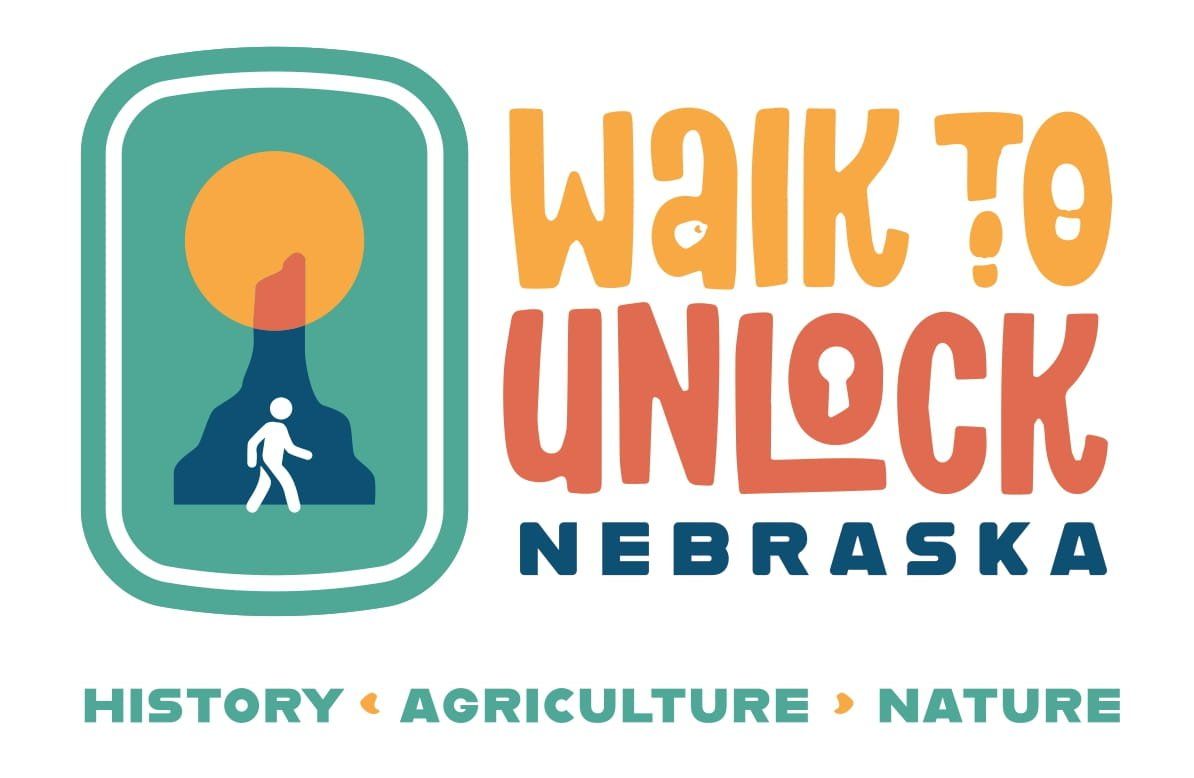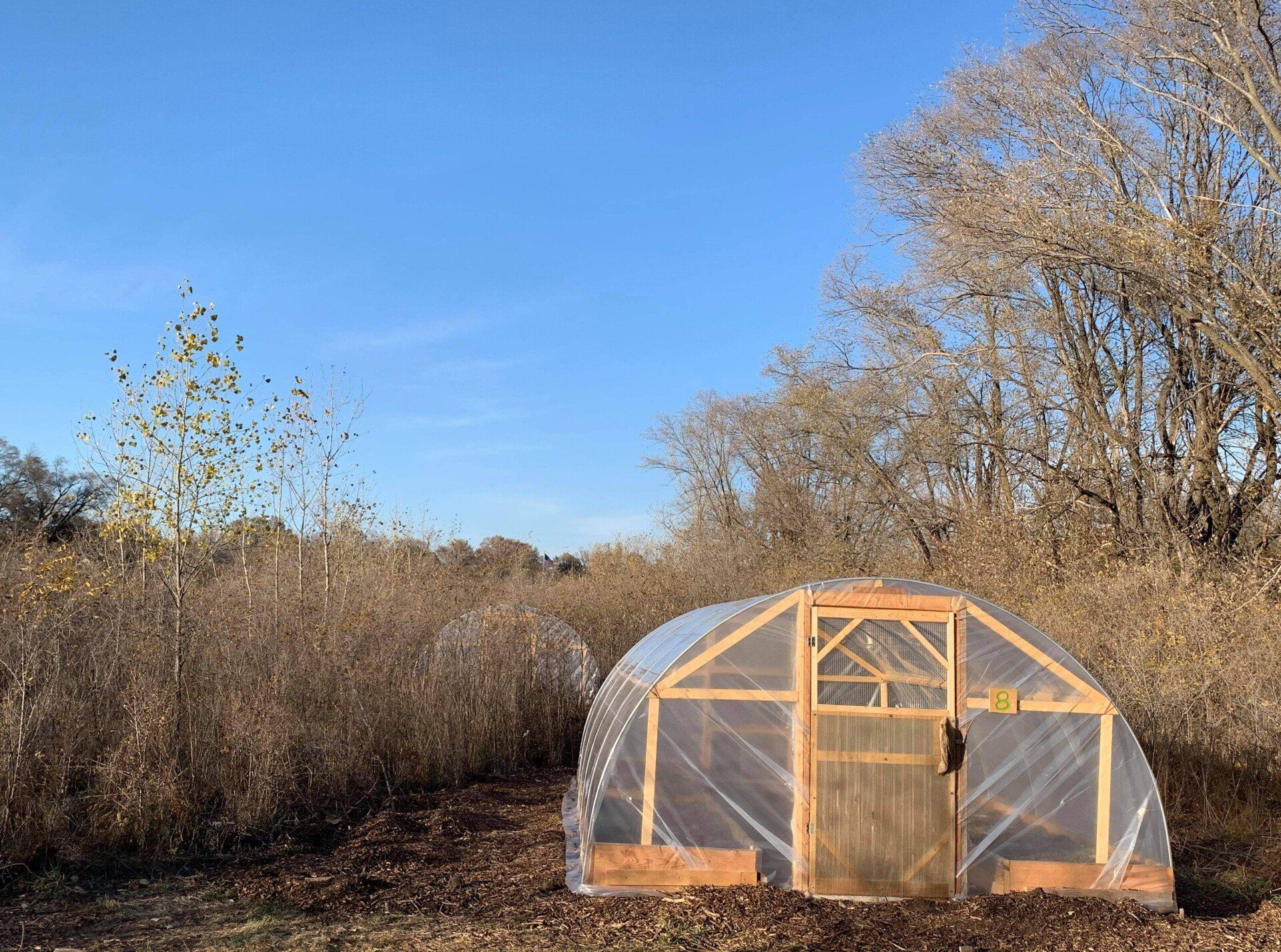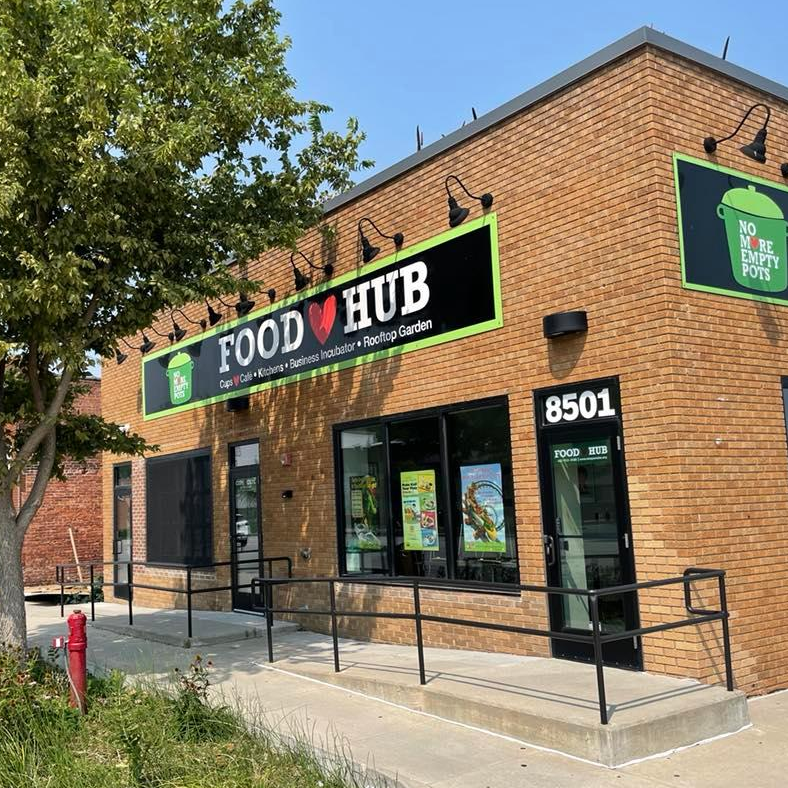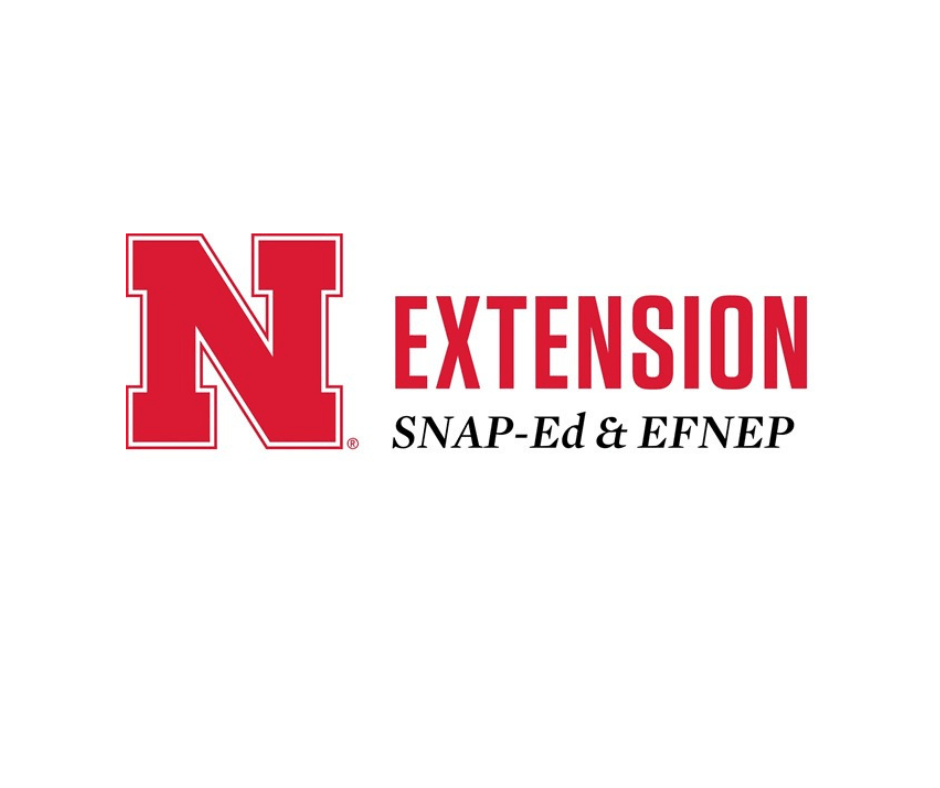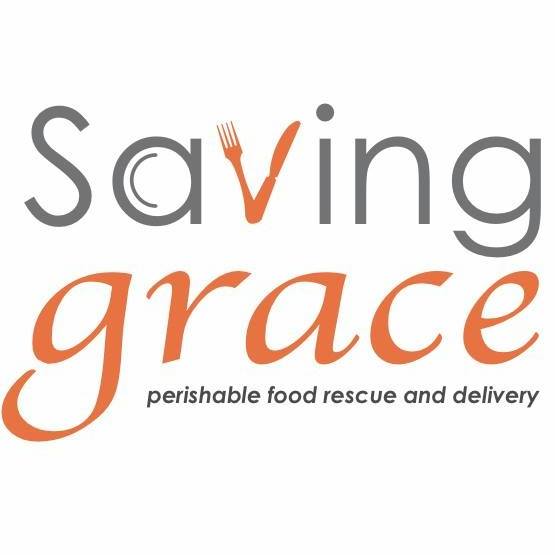Omaha Sunflower Cooperative spreads seeds of change, creates new opportunities for BIPOC farmers
Omaha Sunflower Cooperative spreads seeds of change, creates new opportunities for BIPOC farmers
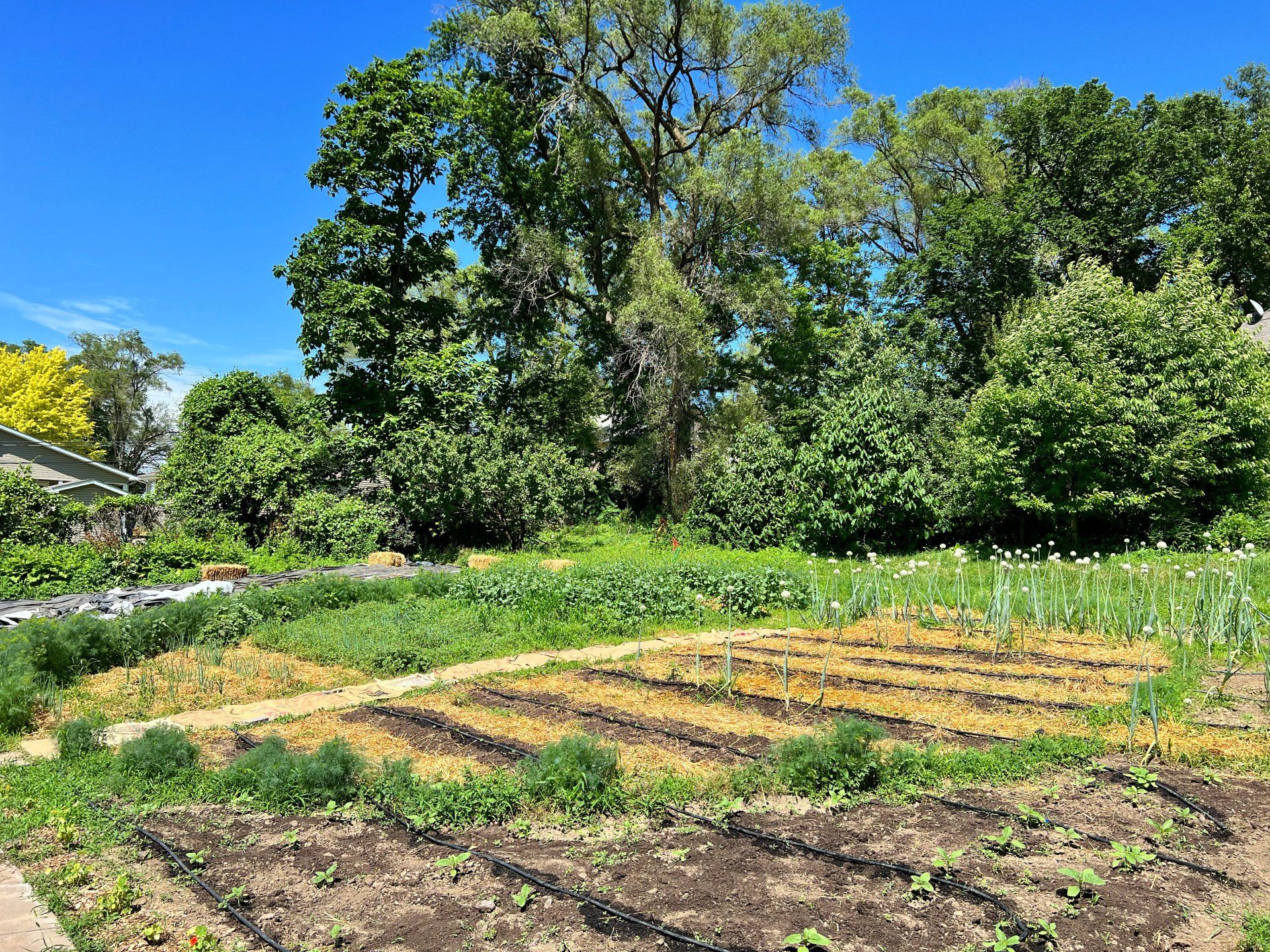
Omaha Sunflower Cooperative (OSC) member Dex Gabriel-Woods came up with the garden plan as the steward of the cooperative's shared growing space. The team planted a ring of dill to deter deer from eating the okra seedlings. In addition to the okra (not yet planted at the time of the photo), OSC members grew sunflowers, green onions, Ethiopian kale and bulb onions in the space. Photos courtesy of Stephanie Finklea
For a long time, Stephanie Finklea had a dream to establish a farming collective supporting sustainability and economic equality.
After a period of dormancy, it was Finklea’s time in Austin that helped the idea to germinate. While in Austin, a city with its own local food movement, Finklea says she received encouragement to start her own co-operative of urban farmers. She returned to Omaha with this purpose.
Following a stint with local nonprofit The Big Garden, Finklea continued to build connections with members of the local agricultural scene. During this time, she says she observed the need for more BIPOC representation (black, Indigenous, and people of color) in the urban farming community.
“At some point, it became, ‘Well, why don’t I see more black and brown faces within this scene?’” Finklea says. “‘Why don’t I see them in positions of knowledge and wisdom?’ Beyond the reasons of food justice, personal health and creating sustainability, it was also just wanting to see more leadership positions provided and space for BIPOC people within this Omaha agricultural and local food movement.”
Establishing roots
After talking with several friends, including fellow urban farmer and gardener Alex O’Hanlon, Finklea shared her desire to start a co-operative for the underrepresented farming population. In summer 2021, she and O’Hanlon founded Omaha Sunflower Cooperative (OSC) and began selling produce at local markets. They also filled the greenhouse at the Bohemian Gardens event and took their produce to the Fair Deal Market, which was running on 24th Street at the time.
“We participated in the last two markets and sold as pay-what-you-wish since we were just getting started,” Finklea says. “We wanted to make sure that food was accessible to everyone.”
Seeking to build momentum from those events, Finklea says she and O’Hanlon created an Instagram page to inform more people about their work. They also talked to community members and built interest in their weekly Thursday night meetings, which are open to BIPOC farmers who wish to participate, share resources and provide feedback on how they want the co-operative to function.
Since starting OSC, Finklea says she has worked to offer a democratic structure where each member of the co-operative votes in the decision-making process. Despite its name, OSC is not a co-operative in the legal sense. Instead of filing officially as a co-op, Finklea and O’Hanlon created an LLC, which has allowed them to establish growth before working toward the next step.
Growth and support are key parts of OSC’s operating structure. The purpose is also to help members (many are small business owners) advance their mission and mitigate financial obstacles, something Finklea says she didn’t observe in the nonprofit sector.
“I got a little disheartened by the nonprofit industry in Omaha,” she says. “I really wanted to see nonprofits serve as a way to redistribute wealth, and I didn’t really see that happening at the time. I wanted to see that people’s needs were met in an economic way. That was also the motivation for starting the co-operative.”
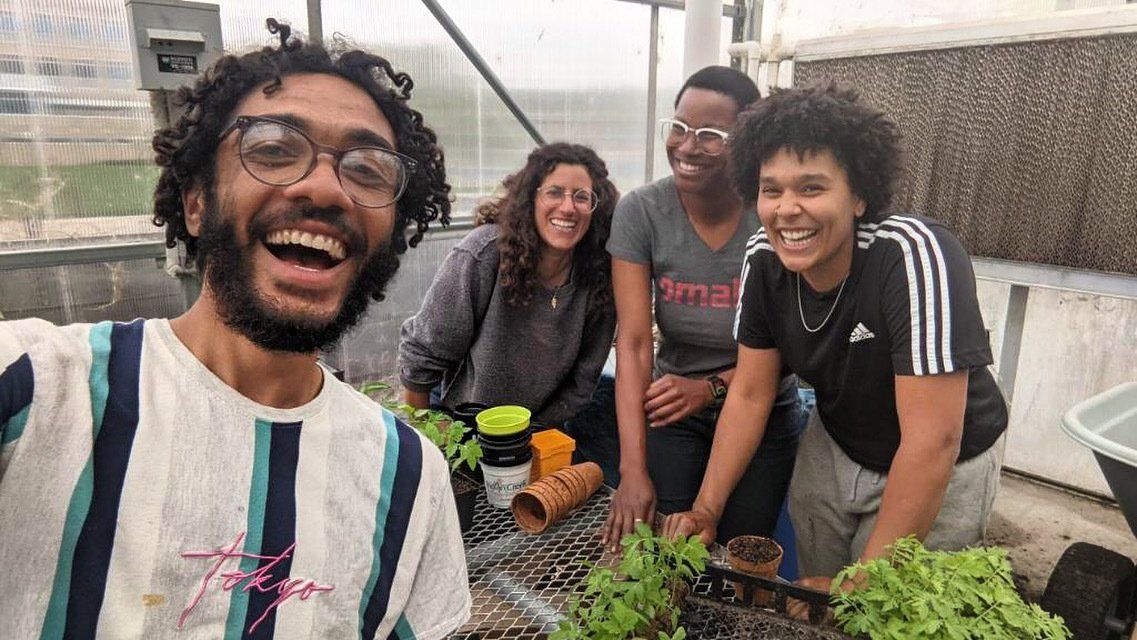
Sprouting growth
Upon joining the co-operative, members also have access to OSC’s communal garden and the Big Garden’s cold storage space. OSC members collectively enter their produce at markets, and the members share profits at the end of the season.
Finklea says her mission is to serve the needs of minority farmers and provide a setting where they can safely share their concerns. For this reason, OSC will remain a BIPOC space indefinitely, although anyone can subscribe to the co-operative’s email list and newsletter. The more people participate, the more they can shape the co-op.
“You’re going to get out of it as much as you participate, and those things can change,” Finklea says. “We’re willing to let them fluctuate as we find what we need. I think we have that flexibility as a new organization to still do that. It’s pretty easy to get involved. I would say, if you want to shape how the co-op grows, now is a good time to reach out to us.”
Spreading impact
Among OSC’s active members, many are new American farmers from African and Asian countries. Finklea says they possess a wealth of knowledge in agricultural practices, but many face language and transportation barriers that prevent them from sharing produce at markets.
As OSC has worked to remove those obstacles, many producers have expressed gratitude for the co-operative’s role as a BIPOC advocate. On Finklea’s part, she says she leaves group meetings feeling refreshed and inspired, especially when she visualizes OSC’s potential.
“I get to see myself represented,” she says. “I get to learn from them as much as I get to share my own wisdom. It’s really uplifting and encouraging. I leave those meetings and my cup feels so filled. That’s been invaluable for me.”
To learn more about Omaha Sunflower Cooperative, visit their Instagram page.
